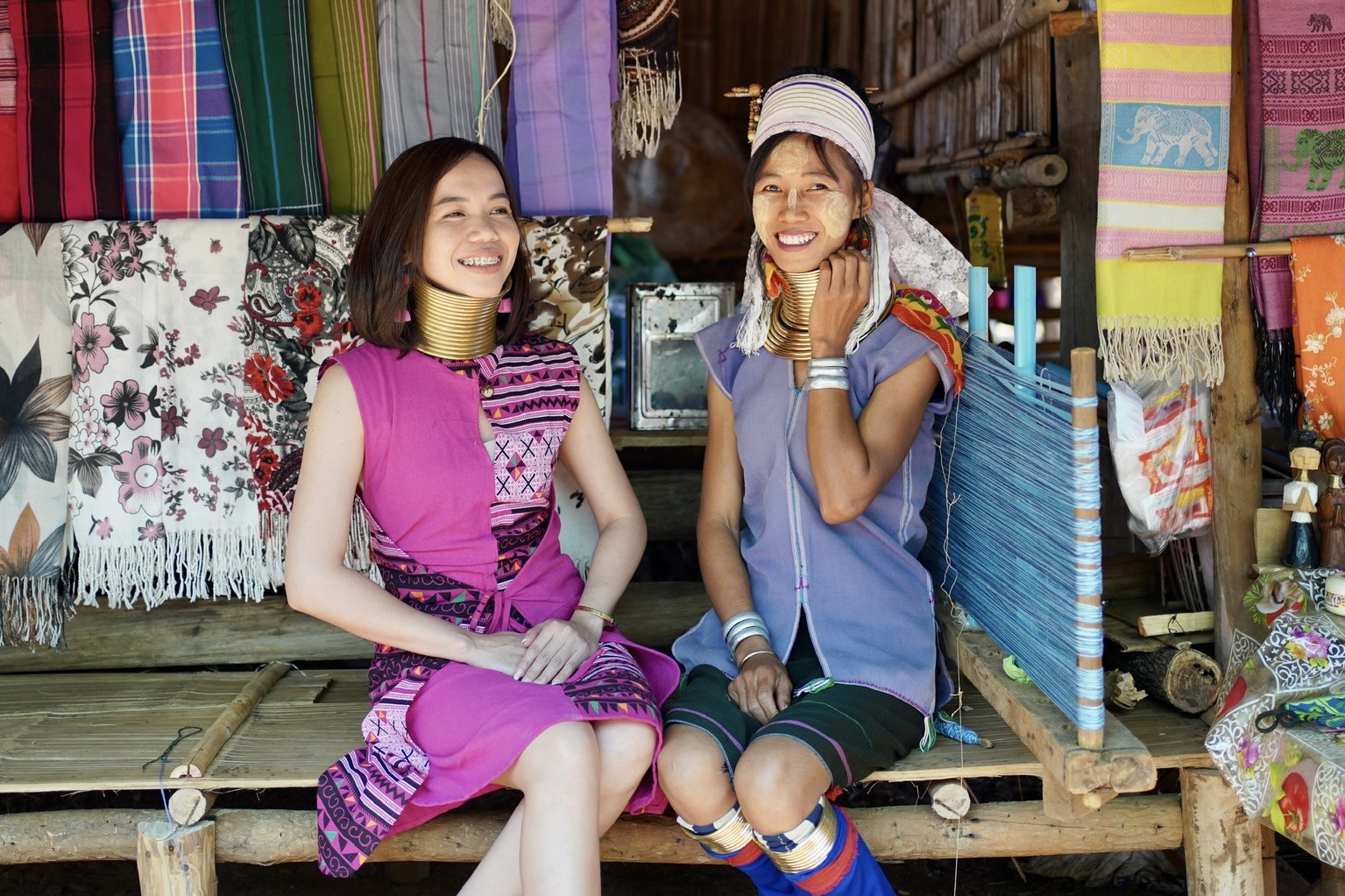My Unforgettable Trip in Chiangrai: Long Neck Karen Village

Two years ago, I took a trip that changed how I think about travel. Instead of visiting beautiful places or busy cities, I went to a village in Chiang Rai, Thailand, to see the Long Neck Karen people. They're sometimes called "giraffe women."
The term "human zoo" frequently pops up in discussions about this community. There's a certain truth to it. Tourists flock to the village, eager to witness the unique tradition of women adorned with heavy brass neck rings from a young age. Standing there, I couldn't help but feel a twinge of guilt. Was this cultural exchange, or just a show?
Stepping into the village, the lush greenery surrounding the simple wooden houses clashed with the obvious poverty. Think dusty roads and a vibe straight out of a history textbook. But lining the paths were rows of stalls filled with color – gorgeous scarves and handmade jewelry, each piece a testament to Karen's incredible craft skills.
Here's the thing, though. As we explored deeper, the weight of the situation hit me. The air hung thick and stagnant, and the afternoon heat felt brutal. Poverty stared me right in the face, a reality check that shattered any romanticized ideas I had.
But hey, travel's not all sunshine and rainbows, right? We still captured some amazing photos – the vibrant clothes, the glint of the gold rings – and guess what? We connected with some of the women! It turns out that tourist dollars are a big deal for the community, and seeing someone buy their crafts brings genuine smiles to their faces. Maybe it wasn't a total human zoo after all.
A Moment of Connection: Weaving with a Karen Lady
One encounter changed my perspective. While browsing a stall filled with stunning woven scarves, a Karen woman with a warm smile and with set of white beautiful teeth waved me over. Despite the weight of her own brass rings, she moved with surprising grace as she set up a tiny loom. Her eyes sparkled as she placed a lighter set of rings around my neck – a symbolic gesture, I realized.

The next minutes flew by. Using a mix of hand gestures, she patiently guided me through the art of weaving. The rhythmic clack of the loom and the soft chatter filled the air as I fumbled with vibrant threads. Seeing the colorful strands come together under my clumsy fingers brought a surge of accomplishment – a connection forged through shared experience. It was a powerful reminder that cultural exchange can be a two-way street, building bridges of understanding and appreciation.
Travel with a Heart: Making a Positive Impact

Look, I'm all for epic adventures, but travel should be about more than just ticking boxes. Here's how to make your visit to the Long Neck Karen village a positive one:
- Be chill, not intrusive: Respect their space and avoid taking creepy photos. Treat these women with kindness, after all, they're just trying to share their culture.
- Support local businesses: Snag some of their amazing crafts! It's a fair exchange that directly helps the community.
- Do your homework: Learn about the Karen people and their history before you visit. Understanding their culture goes a long way.
My visit to the Long Neck Karen village was a rollercoaster of emotions. It forced me to confront the complexities of cultural tourism. While the "human zoo" label has some truth, it doesn't paint the whole picture. There's a real community here, with rich traditions, struggles, and joys. By approaching these encounters with respect, awareness, and a desire to learn, we can ensure our travels are about more than just selfies – they can be journeys of genuine connection and positive impact.




